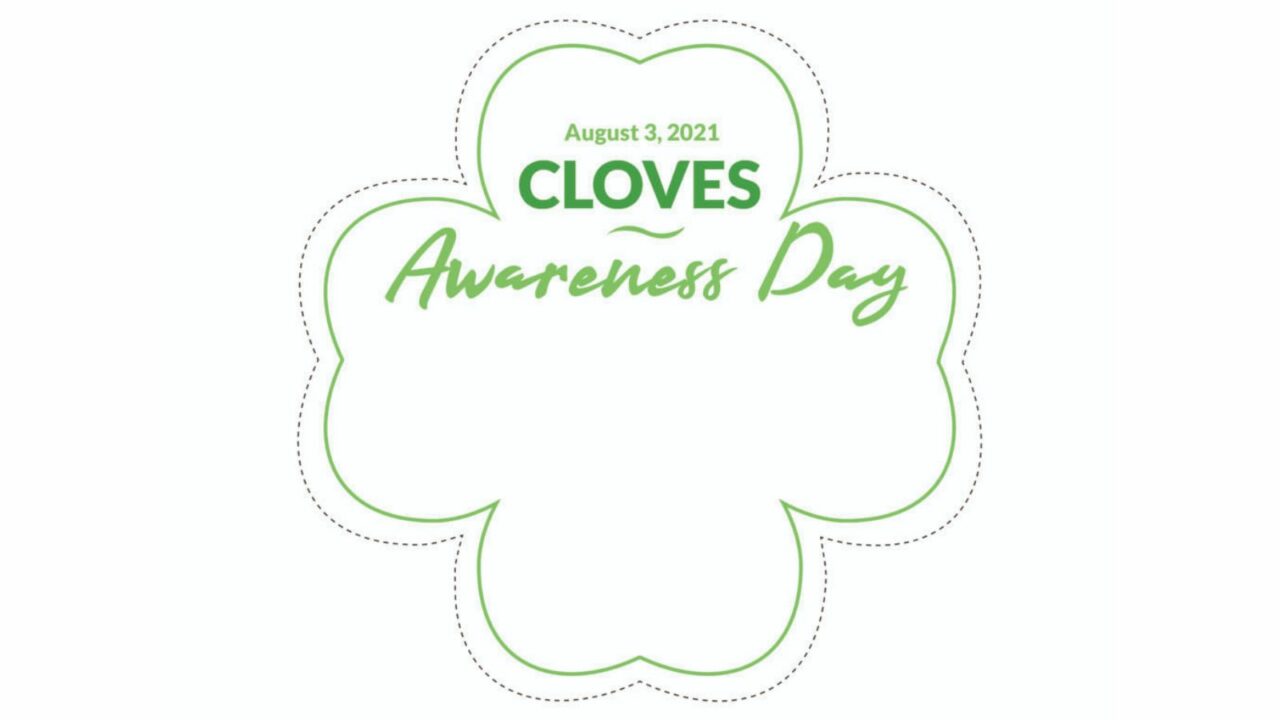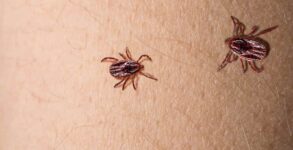Cloves Syndrome Awareness Day 2022: Cloves syndrome is a very rare genetic disorder that affects the development of many different parts of the body. Individuals with Cloves syndrome often have distinctive facial features, skeletal abnormalities, and organ system defects. There is no cure for Cloves syndrome, but early diagnosis and treatment can help improve the quality of life for affected individuals.
What is Cloves Syndrome?
Cloves syndrome is a rare genetic disorder that affects the development of many different organs and systems in the body. The most common features of Cloves syndrome include congenital heart defects, abnormal blood vessels, abnormalities of the nervous system, and skeletal defects. People with Cloves syndrome often have a distinctive facial appearance, with widely-spaced eyes and an unusually shaped head.
Cloves Syndrome occurs due to mutations in the PIK3CA gene. A child’s long-term health depends on the severity of symptoms and their age. The sooner doctors can diagnose symptoms, the more effective treatment can be.
Cloves syndrome is a very complex disorder, and there is currently no cure. Treatment focuses on managing the symptoms and supporting affected individuals and families.
Cloves Syndrome Awareness Day is an annual event that raises awareness of this rare disorder and provides support for those affected by it. This year’s event will be held on August 3.
The Different Types of Cloves Syndrome
There are four different types of Cloves Syndrome, each with its own set of symptoms. Type 1 is the most common, and symptoms include developmental delays, mental retardation, and seizures. Type 2 is less common, and symptoms include heart defects and kidney problems. Type 3 is very rare, and symptoms include brain abnormalities and eye problems. Finally, Type 4 is extremely rare, and symptoms include skeletal abnormalities.
Cloves Syndrome Awareness Day is celebrated on August 3 each year. This day was created to raise awareness of this rare genetic disorder and to provide support for those affected by it.
Early Signs and Symptoms of Cloves Syndrome
There are some early signs and symptoms of Cloves Syndrome that parents and caregivers should be aware of. These include:
· Delayed development milestones – children with Cloves Syndrome often reach developmental milestones later than other children their age.
· Intellectual disability – many children with Cloves Syndrome have an intellectual disability.
· Behavioral problems – children with Cloves Syndrome may exhibit behavioral problems such as aggression or self-injurious behavior.
· Seizures – some children with Cloves Syndrome experience seizures.
· feeding difficulties – many children with Cloves Syndrome have difficulty feeding and may need a feeding tube.
If you notice any of these signs or symptoms in your child, please contact your doctor or a genetic counselor for further evaluation.
Diagnosis of Cloves Syndrome
Cloves Syndrome is a rare genetic disorder that affects the development of certain organs and tissues in the body. The most common symptoms of Cloves Syndrome include heart defects, abnormalities of the hands and feet, and problems with the development of the nervous system.
Currently, there is no cure for Cloves Syndrome. However, treatment options are available to help manage the symptoms of the disorder. Early diagnosis and treatment is important for the best possible outcome.
Cloves Syndrome Awareness Day is celebrated on August 3rd each year. This day is an opportunity to raise awareness about this rare disorder and to provide support for those affected by it.
Treatment for Cloves Syndrome
There is no known cure for Cloves Syndrome. However, there are treatments available that can help manage the symptoms and improve the quality of life for those who have the condition.
The most common symptom of Cloves Syndrome is chronic pain. There are a number of different pain management techniques that can be used to help relieve this symptom. These include medication, physical therapy, and acupuncture.
Another common symptom of Cloves Syndrome is fatigue. This can be managed by getting regular exercise, getting enough sleep, and eating a healthy diet.
There are also a number of support groups available for people with Cloves Syndrome. These groups can provide information and support to help people cope with the condition.
Coping with Cloves Syndrome
People with Cloves syndrome often have problems with their heart, bones, skin, and nervous system. There is no cure for Cloves syndrome, but treatments are available to help manage the symptoms.
People with Cloves syndrome face many challenges. The most difficult challenge is coping with the fact that there is no cure for the condition. This can be very difficult to accept, but it is important to remember that treatments are available to help manage the symptoms of the condition. It is also important to build a support network of family and friends who can offer emotional support.
Another challenge people with Cloves syndrome face is dealing with the physical symptoms of the condition. These can range from mild to severe and can be very difficult to deal with on a daily basis. However, there are treatments available that can help lessen the symptoms. It is important to talk to your doctor about all of your options so that you can find the best treatment plan for you.
Cloves syndrome can be a very difficult condition to live with, but there are
Conclusion
I hope this article has helped raise awareness for Cloves Syndrome and the importance of August 3rd as Cloves Syndrome Awareness Day. This rare condition affects far too many people, and yet most people have never even heard of it. By sharing this information, we can help spread awareness and understanding of this syndrome, which will ultimately lead to better diagnosis and treatment options for those affected by it.


















